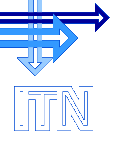
| Home | |
| Britain | |
| World | |
| Money | |
| Sport | |
| Entertainment | |
| Weather | |
| Olympics 2000 | |
| Special Reports | |
| Contact ITN | |
| Help | |
| The Company | |
| Terms/Conditions | |

|
|||||||||||||||||||||||||||||||||
|
Hundreds of thousands join rally |
||||||||||||
|
At least 200,000 people have poured into central Belgrade for a rally to show support for opposition candidate Vojislav Kostunica. Huge crowds poured in from all directions to Republic Square for the rally, a key test of whether Kostunica has enough public backing to force the government to drop plans for a second poll. The main thoroughfare leading to the square was jammed with people and veterans of demonstrations that have marked Milosevic's turbulent 13-year-rule said they had never seen anything like it. Throughout Serbia, the main Yugoslav republic, thousands also streamed into the streets of many other cities. Traffic stopped around Republic Square as the crowd streamed in from all directions. The atmosphere was festive, with some carrying football rattles and cards saying "He's Finished!", others throwing firecrackers and flares. In the centre of the square, a note displayed on a digital clock read "Slobo, where is your courage now?" "Elections are not car races, in which a contestant can catch up in the second round," opposition spokesman Cedomir Jovanovic said. "Our victory is not negotiable." The protesters defied government attempts to undermine the protest by banning a venue initially planned for the rally. Such a large opposition turnout despite fears of clashes with police indicates Milosevic's attempts to outmanoeuvre his opponents stand little chance. Police kept a low profile in the square itself but were clearly visible in and behind the nearby parliament building. One former policeman, Dusko Milanovic, was in the crowd. "Victory is ours and there will be no second round" he said. He claimed the police were on the side of the demonstrators but cautioned, that Milosevic might still find support among special units for a crackdown. Milutin Grujovic, a 46-year-old driver, said: "This is a peaceful protest and police also voted for Kostunica, they voted for the same thing we voted for". Yugoslavia's foreign minister tried to discourage the protests, appearing on state television to allege strong pressure from foreign countries against Yugoslavia. The demonstration, called as a celebration, was moved at the last moment after police said it could not be held in the much larger space in front of the Yugoslav parliament. Activists from Serbia's student-based Otpor movement warned that government provocateurs dressed in their T-shirts might try to cause trouble at the protest. The Yugoslav navy said it had completed three days of exercises in the Adriatic coinciding with joint war-games nearby involving US and Croatian forces. A Croatian official said this week that it was not an accident that the exercise overlapped with the Yugoslav vote. Fears that Slobodan Milosevic may turn to his faithful army commanders to help him hold onto power may be unfounded according to a former chief of staff. The lower army ranks are not universally among the hard-line Yugoslav president's allies and many support Kostunica, according to Momcilo Perisic. The former general said: ""There are many army officers who applauded the opposition victory in the elections." Kofi Annan, United Nations secretary-general, has urged Milosevic to stand down, saying the Yugoslav people are ready for change. The Yugoslav Electoral Commission said Kostunica had secured 48.22 per cent of the vote - just short of the 50 per cent that would have ensured him outright victory - against Milosevic's 40.23 per cent in Sunday's presidential poll. The opposition says Kostunica won 54.66 per cent of the vote against 35.01 for Milosevic, basing its figures on results gathered by opposition representatives from almost all the country's 10,500 polling stations. Croatia has warned the West not to be hasty in lifting sanctions against the Yugoslav regime, saying Belgrade should first hand over indicted war criminals to the United Nations. President Stipe Mesic said: "It should happen when Yugoslavia passes a law on co-operation with the Hague tribunal, and when they hand over war criminals to be tried by the tribunal."
|
|||||||||||
|
||||||||||||
|